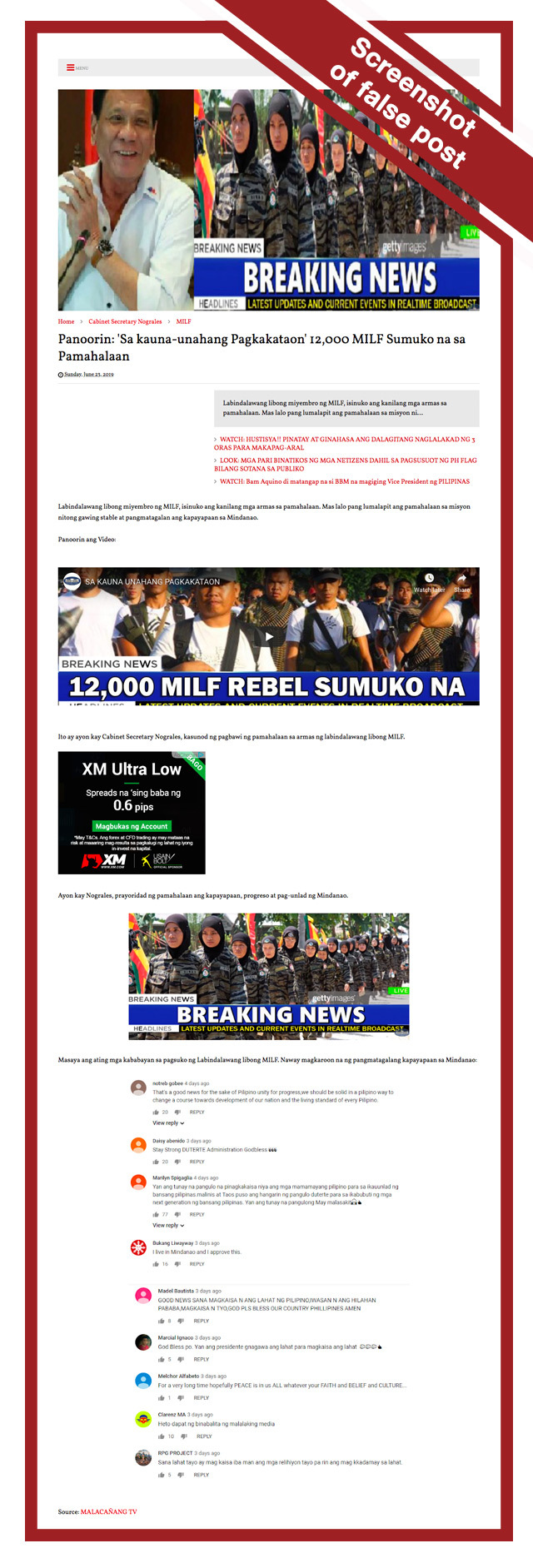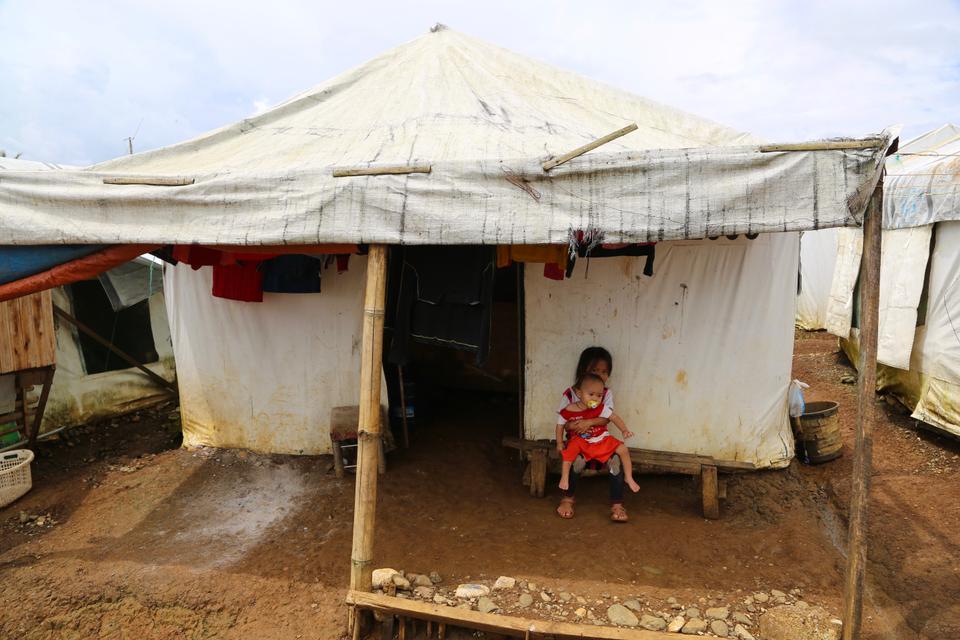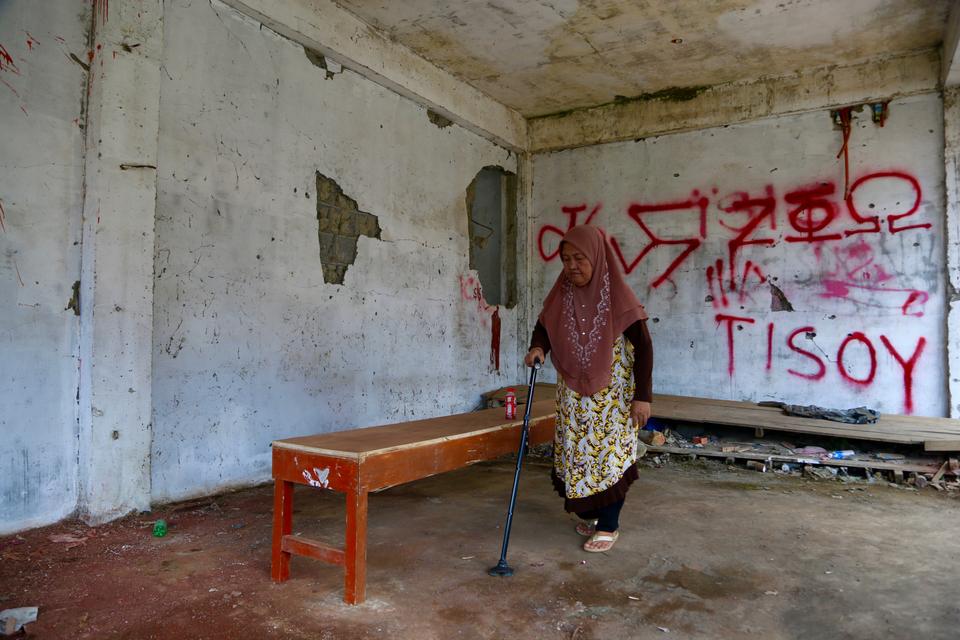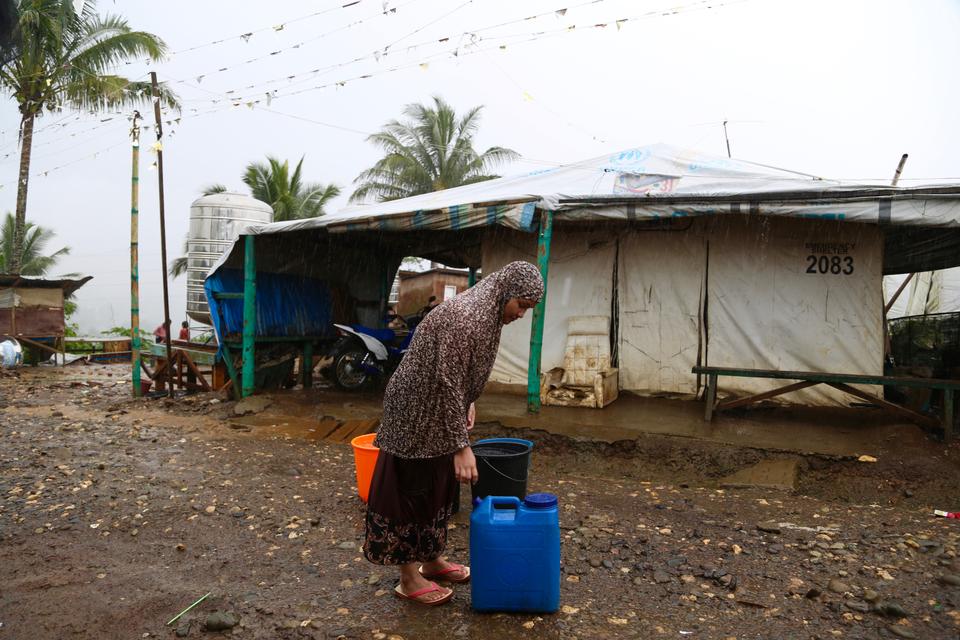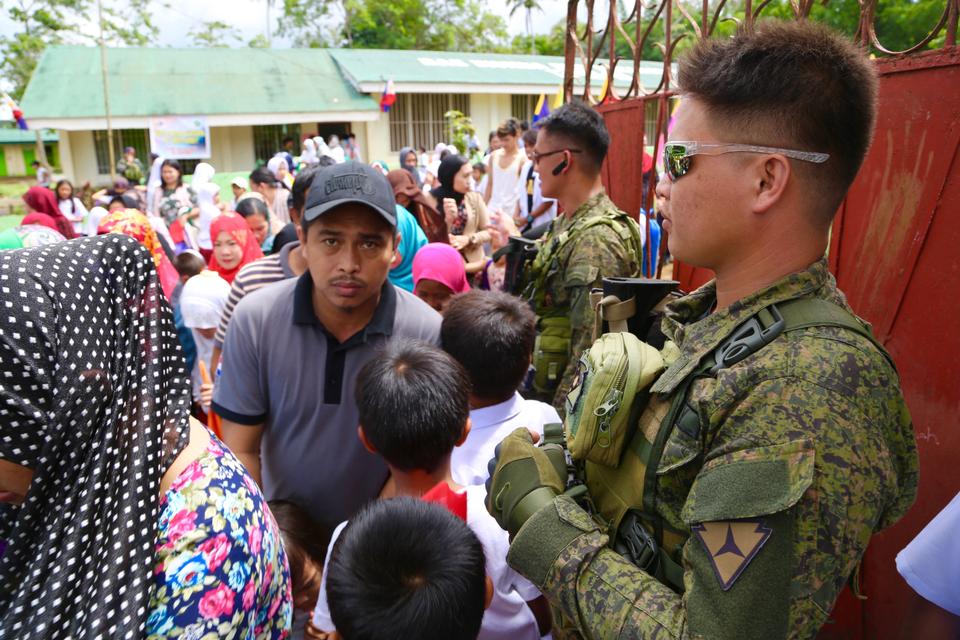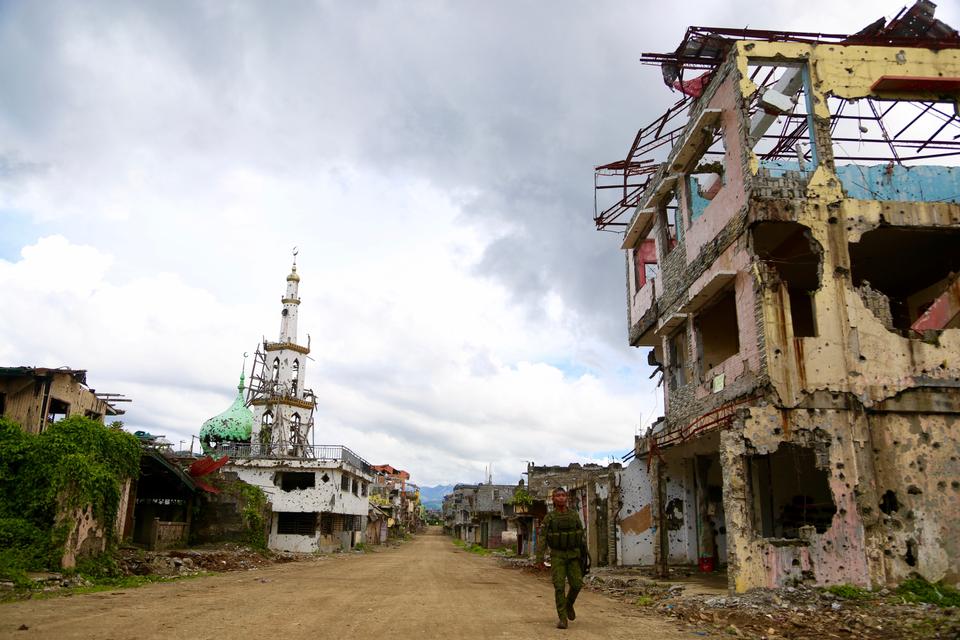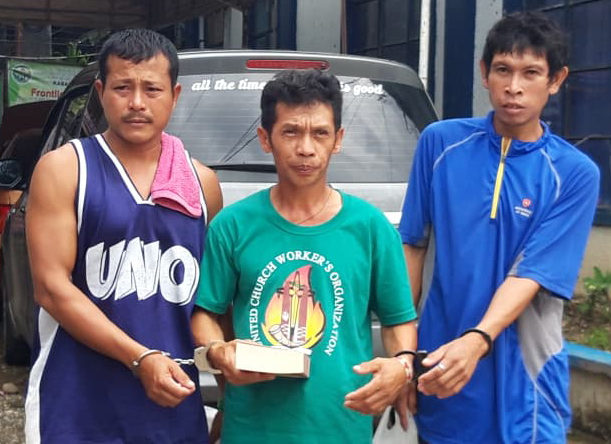From Rappler (Jul 6, 2019):
Duterte at midterm gets high grades for keeping Mindanao promise
Thanks to President Rodrigo Duterte, the new Bangsamoro region is in place and the Mindanao promise is on track. His challenge in the next 3 years is to make sure that BARMM delivers on its promises.
Cotabato City, the seat of power of the newly created Bangsamoro Autonomous Region in Muslim Mindanao (BARMM), is bursting with activities these days.
Booking a hotel room is a real pain. Traffic is bad around the main thoroughfares. Coffee shops are packed with a mix of city residents and all kinds of visiting consultants, analysts, and journalists, holding meetings or waiting for appointments with BARMM personalities.
At the end of the day, Pagana restaurant’s loyal customers now find it hard to get a table because foreigners of all colors and sizes – representing the alphabet soup of international organizations – have also taken a liking to the food and the ambiance.
What happy problems! It wasn’t too long ago when the future of BARMM wasn’t certain, and fear gripped everyone who understood the grim consequences of another setback in the peace process with the former rebel group Moro Islamic Liberation Front (MILF), which abandoned its quest for Mindanao independence for stronger autonomy.
BARMM is finally in place and
Cotabato City voted to join the region – thanks in large part to the efforts of President Rodrigo Duterte. It was a promise from the first president from Mindanao, and he delivered.
Notwithstanding setbacks in the region in the first 3 years of his presidency – including the
2017 Marawi crisis and the
rough start of the new autonomous government – analysts say BARMM’s creation after a decade of setbacks is the single achievement that has brought the region to “a better place.”
People in Muslim Mindanao see BARMM as the be-all-and-end-all solution for the historical injustices. It is packaged as the antidote to extremism, paving the way for an environment that will bring in peace and development in the region.
As Duterte gets half-way through his 6-year administration, analysts give him high grades for his performance in Muslim Mindanao.
Regular surveys and the results of the midterm elections in May also show how the President continues to enjoy overwhelming support from Mindanao.
High grades from Mindanao observers
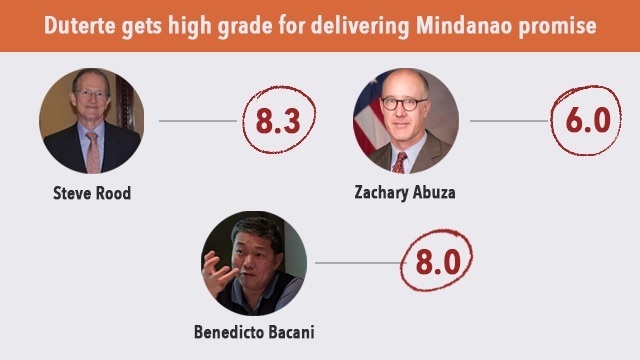
Benedicto Bacani, executive director of the Institute for Autonomy and Governance, gave Duterte a score of 8 out of 10 “if only for moving the peace process forward significantly.”
BARMM, said Bacani, is a “a key milestone that triggered other milestones,” especially normalization and decommissioning, where tens of thousands of MILF combatants who used to fight government forces are now expected to lay down their weapons and transition to civilian life.
“These former rebels are now allies of the government. It is a big achievement. It’s really because of Duterte’s leadership,” said Bacani.
Social Weather Stations fellow-in-residence and Mindanao expert Steve Rood gave Duterte 2.0 based on the grading system of the University of the Philippines, which he said, is “just below honors” and equivalent to 83%.
“For sure, we’re in a better place than where we were. Duterte gets a fair amount of credit. It’s not because of his detailed lobbying effort – he doesn’t do that kind of thing – but he made it clear he wanted it to happen,” said Rood.
Rood cited Duterte’s critical role in getting Congress to pass the Bangsamoro law. “The fact of the matter is that most congressmen don’t care about the Bangsamoro so they took direction from Duterte,” said Rood. It also helped that he pushed it at the start of his administration, when he enjoyed a strong sway with Congress.
Southeast Asia expert Zachary Abuza from the United States National War College gave Duterte lower but a passing grade nonetheless. “I give him a 5 or a 6,” he said.
“He deserves real credit for shepherding the MILF peace process. He did that against my own expectations,” said Abuza, who believed that Duterte would push for federalism instead.
“The MILF peace process has the potential to do more to improve the security in the Southern Philippines, if successfully implemented,” Abuza said.
Abuza had strong opinions against other developments in the region, including areas outside Muslim Mindanao. Thus, the lower grade.
Duterte’s low points
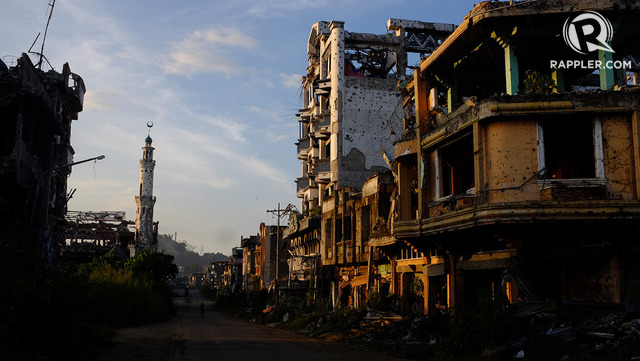 TWO YEARS AFTER. Marawi City has yet to be rebuilt almost two years after the siege, led by local terrorists, ended in October 2017. Photo by Bobby Lagsa/Rappler
TWO YEARS AFTER. Marawi City has yet to be rebuilt almost two years after the siege, led by local terrorists, ended in October 2017. Photo by Bobby Lagsa/Rappler
BARMM is the bright spot that keeps observers hopeful about the region for now. But there certainly were low points in the past 3 years, too.
A year into Duterte’s presidency, in May 2017, fanatics of international terrorist network Islamic State (ISIS) attacked Marawi City. They occupied its financial center for 5 months, flying the black flag as they sought to establish an ISIS province in the country.
The scale of the violence was unprecedented, killing over 1,000 people, including 168 soldiers and undetermined number of civilians. The battle area was flattened by bombs.
Duterte’s leadership was “disastrous,” said Abuza.
Rood also lamented the
President’s “hostility” toward the Maranaos, unfairly taking them responsible for failing to stop the extremists among them.
Duterte promised swift rehabilitation of the country’s only Islamic City, but two years on,
residents still can’t go back to their homes. Duterte failed to fulfill his promise.
Rood said it’s not helping that the hostility between the national government and Marawi residents continues. National authorities are offended and upset when the people reject their proposals, but what they don’t understand is the people only want to go back to their homes, said Rood.
Rood is concerned that this hostility plays into the narratives of extremist groups – presenting the national government as indifferent to Muslims, as they continue attempts to recruit.
Analysts are divided when it comes to Duterte’s actions toward Nur Misuari, the founding chairman of the Moro National Liberation Front who negotiated the now-defunct ARMM, but is now facing rebellions charges linked to the 2013 Zamboanga Siege.
“The
lifting of the arrest warrant on Misuari is really problematic. Misuari is a spoiler to the peace process. He should be in jail,” said Abuza.
But Bacani sees benefits in Duterte’s open communication lines with all the groups and factions in Mindanao, including those that are opposed to BARMM.
The security situation in Mindanao also continues to be problematic despite the deaths in Marwai of key leaders of extremists groups – supposed ISIS emir Isnilon Hapilon and Maute Group leaders Omar and Abdullah Maute.
In 2019 alone, there had been 3 suspected suicide bombings in Mindanao and there are reports that Abu Sayyaf leader
Hatib Sawadjaan is rising to become an ISIS personality.
Outside Muslim Mindanao, Abuza noted that the communist New People’s Army is “as active as it has ever been.” Extrajudicial killings and Duterte’s attacks on the media – while they are not centered in Mindanao – have occurred in the region.
“His declaration of martial law, and continued reliance on it, sets a very dangerous precedent at both the regional and national level. He continues to chip away at the rule of law,” said Abuza.
Challenges to BARMM’s transition
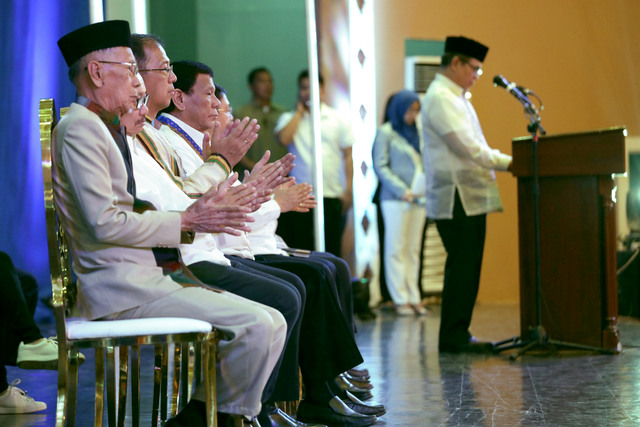 AS PROMISED. President Rodrigo Duterte (4th from left) applauds while Bangsamoro Autonomous Region in Muslim Mindanao interim chief Al Haj Murad Ebrahim gives his welcome remarks during the inauguration of BARMM at the Shariff Kabunsuan Cultural Complex in Cotabato City on March 29, 2019. Malacañang photo
AS PROMISED. President Rodrigo Duterte (4th from left) applauds while Bangsamoro Autonomous Region in Muslim Mindanao interim chief Al Haj Murad Ebrahim gives his welcome remarks during the inauguration of BARMM at the Shariff Kabunsuan Cultural Complex in Cotabato City on March 29, 2019. Malacañang photo
Duterte’s challenge in the next 3 years is to make sure BARMM delivers on its promises. It needs to show governance and promote social cohesion and inclusivity, said Bacani.
“This is as much the responsibility of the national government as it is the responsibility of his appointees in the Bangsamoro Transition Authority (BTA). This is autonomy, not independence,” said Bacani.
BARMM is having a rough start, however. As the former rebels take the reins and govern over 2 million population, they are realizing the burden of high expectations.
Residents in the outskirts of Maguindanao cannot reconcile celebrations for the victory of the peace process with military air strike operations that continues to displace hundreds of thousands of residents. There’s a disconnect.
There is a lot of impatience among observers. They are discouraged by what is seen as MILF’s unwillingness to involve certain groups that didn’t support the peace process and the slow progress setting up government mechanisms.
“There is always certain amount of normal confusion in situations like this anywhere in the world post-conflict, where donors come in and they all want to do what they want to do. It’s up to the transition authority to try to traffic that so they get what they need out of them,” said Rood.
The former rebels are confronted with complex administrative work. “There hadn’t been quite enough work done, but there’s a lot of sensible stuff going on,” said Rood. In June, observers welcomed Sulu political patriarch Sakur Tan’s visit to BARMM as signal of cooperation from the province that voted against BARMM.
BARMM is going to have a lot of money, too. “It’s always a problem when there’s tons of money because of corruption. But they know it. They’ve been saying that for a long time,” said Rood.
The peace process is a long game that doesn’t stop with the creation of BARMM. “The book on the peace process is not yet closed. You need a strong Bangsamoro government to deliver on its promises. The next step is institution building. Former rebels need to learn to govern,” said Bacani.
“There is no option but to make this work. The failure of the BTA is the failure of the peace process,” said Bacani.
https://www.rappler.com/newsbreak/in-depth/234677-duterte-gets-high-grades-keeping-mindanao-promise-halfway-presidency




















